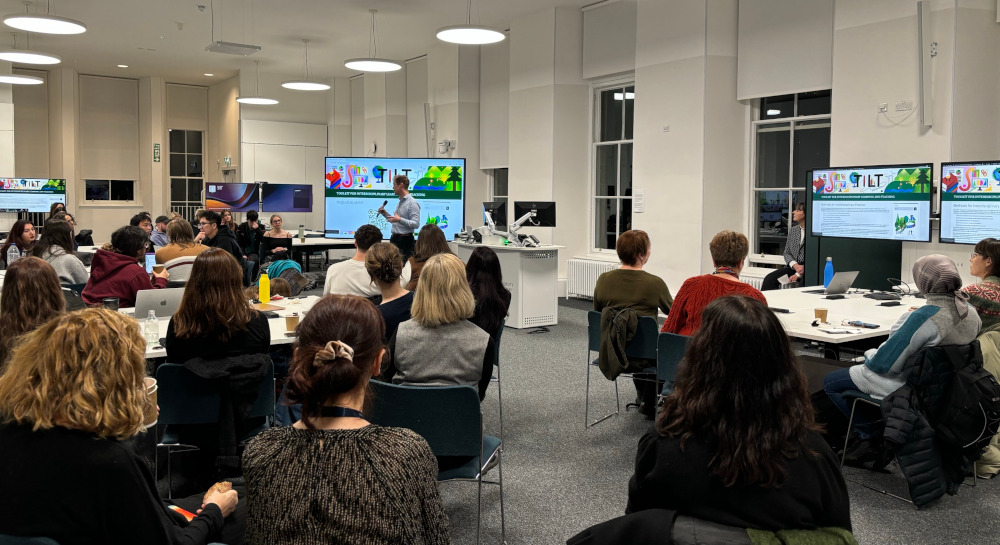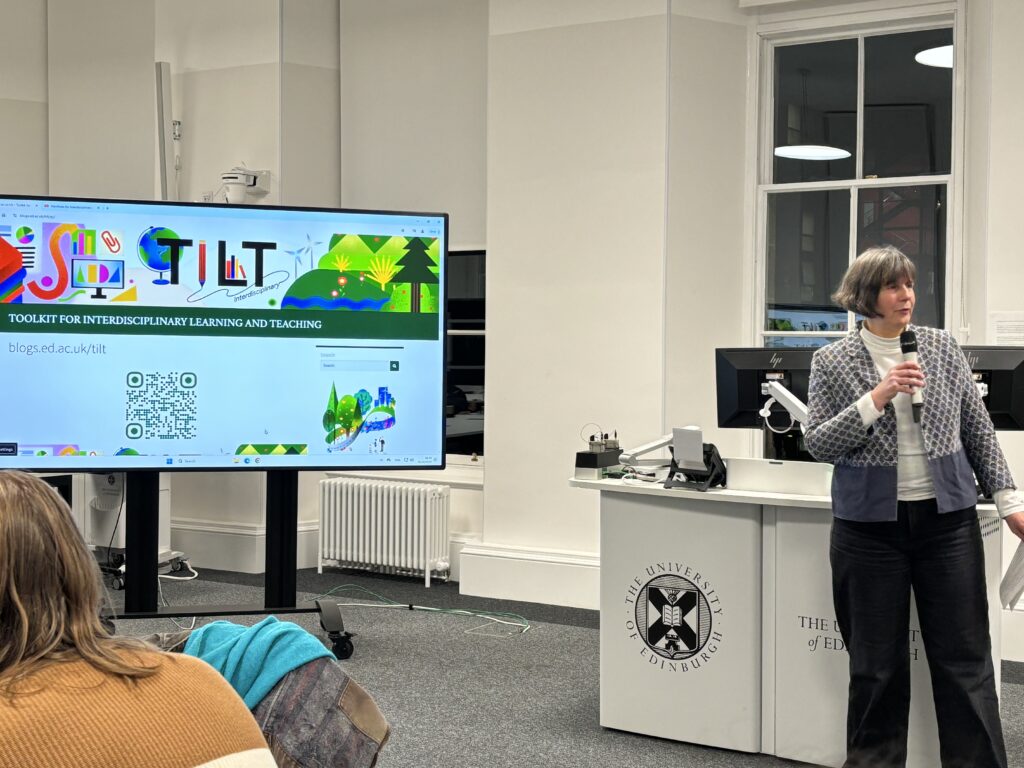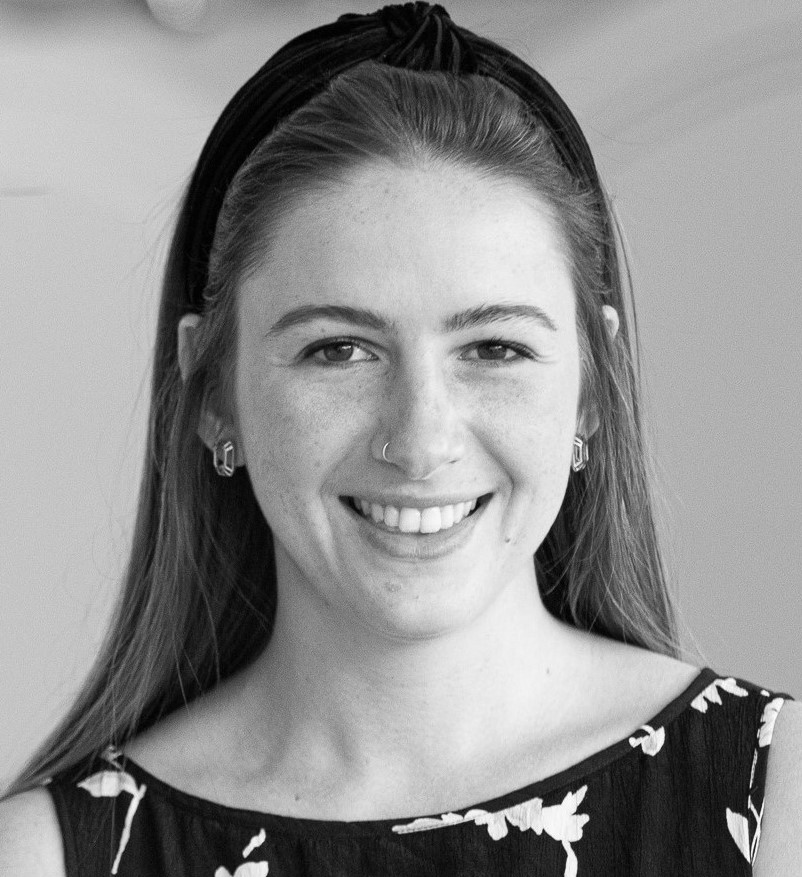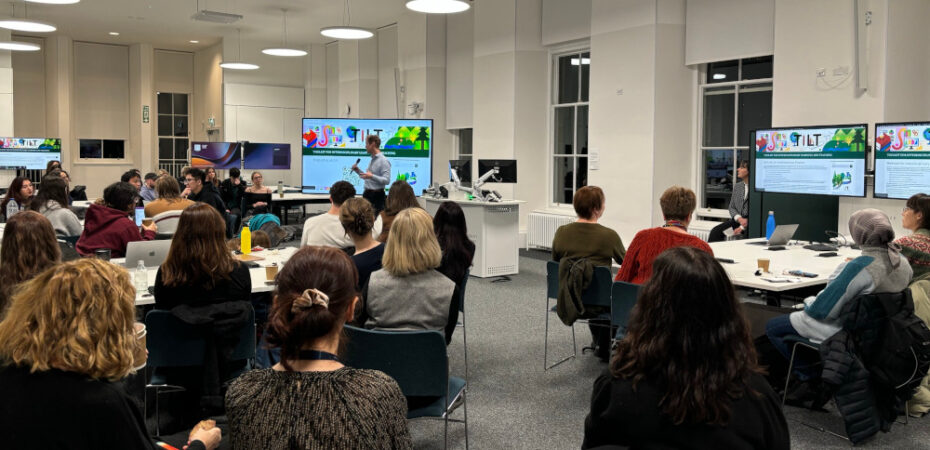
In this extra post, Clare Cullen, Maddie Kurchik, David Overend and Jenny Scoles, introduce the Toolkit for Interdisciplinary Learning and Teaching – a website designed to offer a collection of ideas, methods and resources to support anyone interested in the possibilities of working across, and beyond, disciplines. The toolkit project was funded by the Principal’s Teaching Award Scheme.
Interdisciplinary learning and teaching is being heralded by many educators as the unquestionable way forward for preparing students to successfully navigate their professional lives and enact meaningful change in today’s complex world. Yet our teaching practices and empirical exploration of the interdisciplinary learning and teaching field – especially at undergraduate level – is still in its (relative) early stages. A group of us from Institute for Academic Development, Moray House School of Education and Sport, School of GeoSciences and Edinburgh Futures Institute came together to create a live document that collates insights from interdisciplinary learners and educators, references to relevant publications, teaching resources, and videos from the interdisciplinary classroom: a Toolkit for Interdisciplinary Learning and Teaching (TILT),
After a small, Edinburgh Futures Institute (EFI) funded, pilot-project examining the learning and teaching experiences of students and educators on the Students as Change Agents course, our team of researchers was awarded the Principal’s Teaching Award Scheme to fund further research and develop the Toolkit for Interdisciplinary Learning and Teaching (TILT), led by David. On Thursday November 28th, we hosted a launch event at EFI introducing TILT and highlighting its applicability for a diverse set of users.

The development of TILT began with an intensive period of data collection across various courses offered by EFI, including those offered as part of the new MA(Hons) in Interdisciplinary Futures. Driving our methodological choices was our commitment to co-creation. We fostered relationships with students, teaching assistants, and lecturers at the university, offering a variety of modes of participation: short surveys; reflective journals and activities; classroom observation; and interviews.
As we moved through our analysis phases, we were able to share initial findings at conferences and through publication. Members of our team presented at the Association for Interdisciplinary Studies Conference in Lubbock, Texas in 2023, and at the Interdisciplinary Learning and Teaching Conference in Manchester in 2024. We also published an article entitled, “Troubling Leadership in the Interdisciplinary Challenge-Based Classroom” in Issues in Interdisciplinary Studies and another called, “Creating Edinburgh: diffracting interdisciplinary learning and teaching in the contemporary city” in Humanities and Social Science Communications.

As we began to collate resources and construct texts for the toolkit, we hosted a series of workshops, inviting students, staff, and external leading interdisciplinary experts to contribute to the ideation of the various sections. Six categories emerged:
- What is interdisciplinarity?
- Working with Challenges
- Collaboration
- Interdisciplinary Methods
- Assessment Strategies
- Ethical Practice.
Each category was then developed to include instructive texts and videos, as well as suggested activities and additional resources.
In What is Interdisciplinarity?, we discuss the various, and sometimes conflicting, definitions of interdisciplinary education, delving into the differences between multi-, inter-, and trans- disciplinarity. We also suggest a teaching activity, Manifesto Making, which can help to establish common ground around what educators and students understand interdisciplinary to be, and do. For this activity, our team created our own Interdisciplinary Learning and Teaching manifesto. You can read more about the creation of the manifesto here: An Interdisciplinary Learning and Teaching Manifesto.
The Working with Challenges section offers some examples of challenge-led interdisciplinary learning and teaching, where a global challenge relates to, for instance, inequality and wealth, sustainability and biodiversity, peace and conflict, and global health. This approach guides and supports a problem-oriented pedagogy.
The Collaboration category covers students’ group work, leadership, working across disciplines, and with external partners. Data collection and analysis are reviewed in the Interdisciplinary Methods section, along with cultural and creative methods. Suggestions of how to apply each method are given, along with resources and further reading.

In the Assessment Strategies category, we tackle group projects, ungrading, reflection, and programme level assessment as areas of assessment that support and encourage authentic assessment. Then, in Ethical Practice, we explore concepts of inclusivity, reflexivity, and emotionality, with the aim of working against structures of exclusion and oppression in higher education institutions.
In this video, David and Jenny introduce the toolkit and its sections and share their hopes for how it might be used.
We hope that our toolkit will stimulate additional discussion and exchange around interdisciplinary learning and teaching, and we invite feedback for the website from our readers. After all, our future interdisciplinary practices are perpetually co-created and evolving, and this will be reflected in the live document that is TILT.
Members of ‘Crossing the Line’ PTAS project: David Overend (principal investigator), Seongsook Choi, Andy Cross, Clare Cullen, David Jay, Jenny Scoles and M. Winter.
TILT videos created by Simon Dures and artwork design by Shuxuan Zhang.
Previous Teaching Matters posts from the ‘Crossing the Line’ PTAS project:
- Crossing disciplinary lines: What is interdisciplinary learning really like?
- Doing curriculum transformation: Embedding wellbeing & belonging in curriculum and course design
 Clare Cullen
Clare Cullen
Clare served as a research assistant for the PTAS project “Crossing the Lines” at the Edinburgh Futures Institute. As well as experience as an interdisciplinary secondary teacher, she has an MPhil in African Studies (University of Cambridge) and an MSc in Outdoor Environmental and Sustainability Education (University of Edinburgh). She is now Education Development Coordinator for Project Luangwa, an education and gender equality NGO in Zambia’s Luangwa Valley. In January 2025, she will embark on a part-time PhD at the University of Edinburgh to explore decolonising methodologies in third sector education in Zambia. Clare is passionate about transforming education for a more just and ecocentric world.
 Maddie Kurchik
Maddie Kurchik
Maddie is a Research Fellow at Moray House School of Education and Sport where she works on the PTAS funded project: “Crossing the Line: Developing an Interdisciplinary Toolkit for Higher Education”. Her research interests include gender, technology, work, & pedagogy.
 David Overend
David Overend
David Overend is a Lecturer in Interdisciplinary Studies at Moray House School of Education and Sport. He is Programme Director for the new MA(Hons) Interdisciplinary Futures at Edinburgh Futures Institute. His research is interdisciplinary with a particular interest in creative practice as a strategy for collaboration. David initiated the “Crossing the Line project” to develop research into interdisciplinary learning and teaching at the University.
 Jenny Scoles
Jenny Scoles
Dr Jenny Scoles is the Chief Editor of Teaching Matters. She is an Academic Developer (Learning and Teaching Enhancement), and a Senior Fellow HEA, in the Institute for Academic Development, and provides pedagogical support for University course and programme design. She leads the University’s Learning & Teaching Conference, Board of Studies Network, and her research interests include student-staff co-creation, climate pedagogy, interdisciplinary learning & teaching, professional learning and sociomaterial methodologies.


